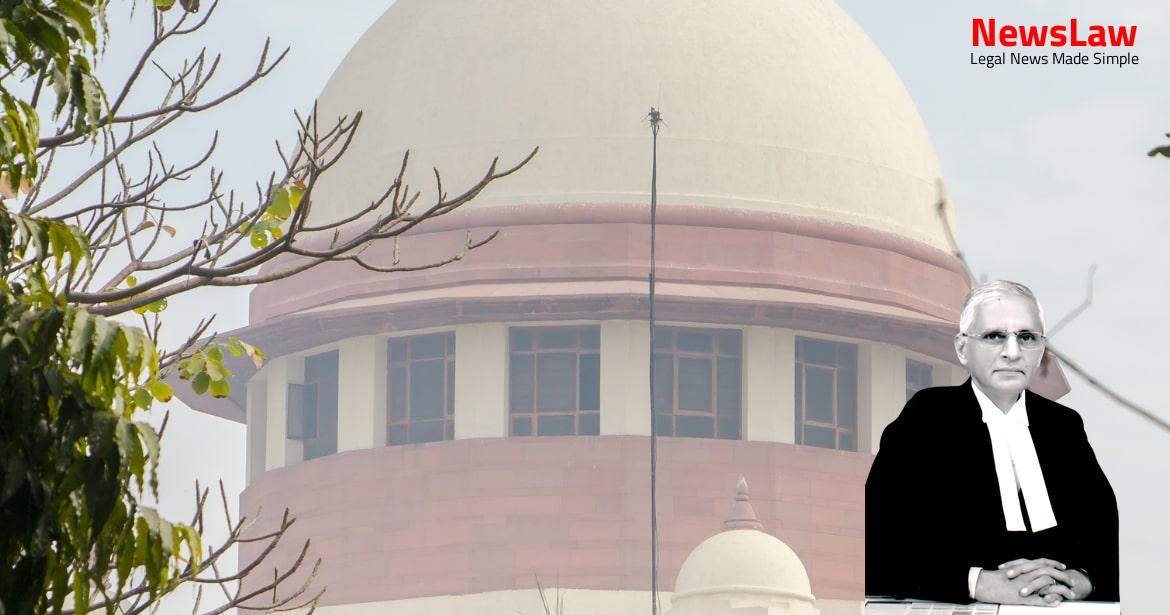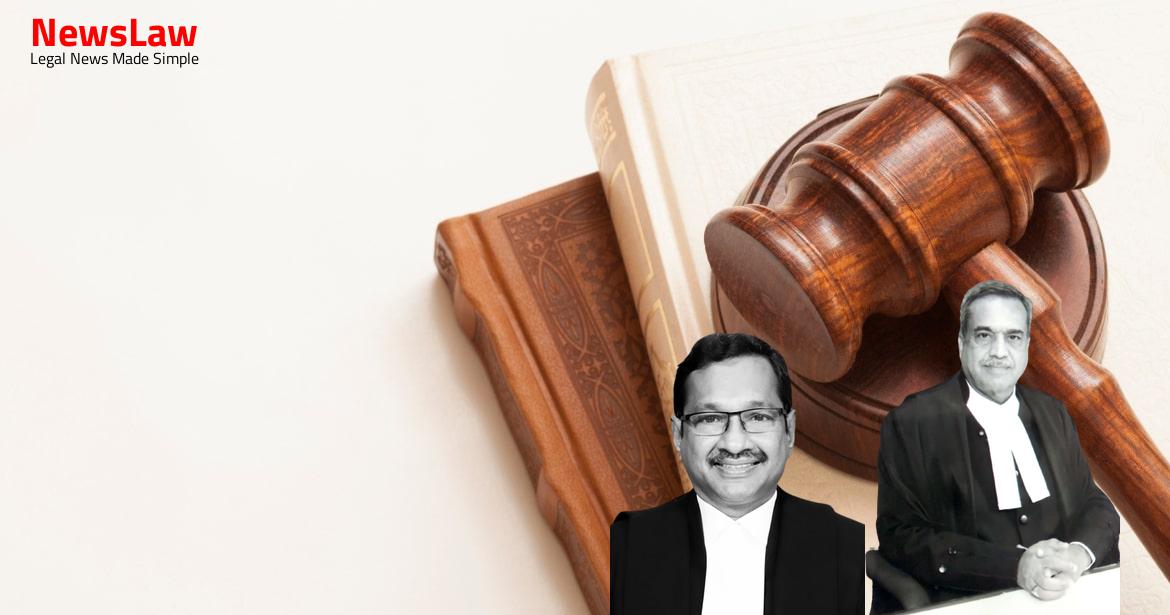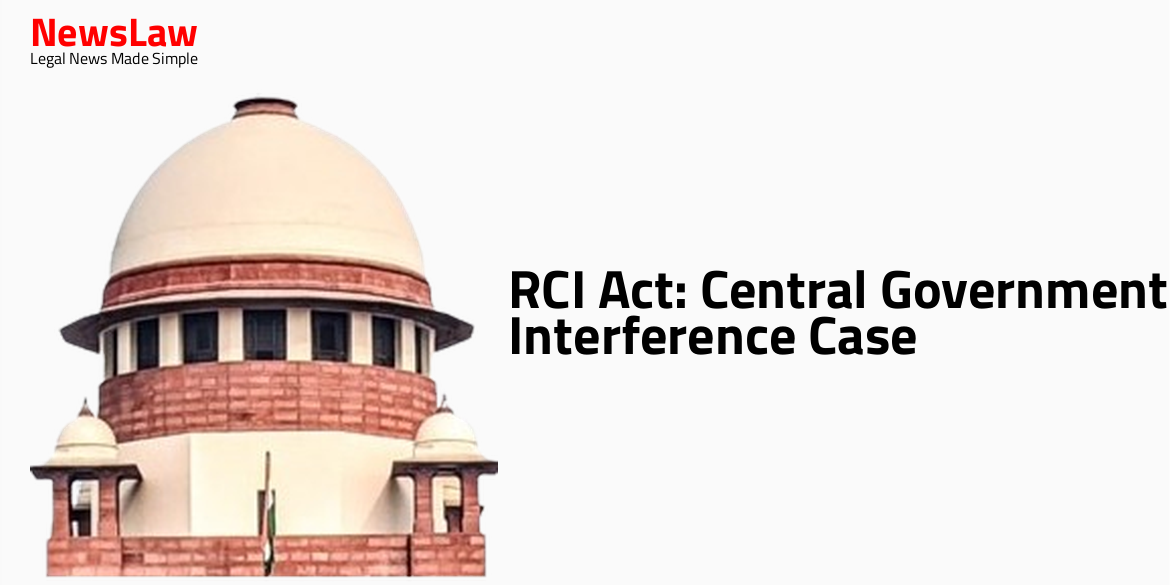In a recent legal case, the court delved into the boundaries of its jurisdiction, particularly in relation to arbitration disputes. The analysis focused on the court’s interpretation of the law and its impact on the arbitration process. This summary explores the key aspects of the court’s legal reasoning and decision-making in the case.
Facts
- The appeal pertains to a judgment of a Single Judge of the High Court of Punjab and Haryana dated 18 May 2016 in FAO 2637 of 2013.
- The contract between the parties involved the supply of 24,900 batons, out of which 22,389 were accepted while the rest were rejected.
- The dispute was referred to arbitration as per clause 17 of the agreement by order of the Civil Judge (Junior Division), Faridkot on 28 June 2005.
- The respondents had deposited Rs 1,00,000 towards security as per the contract terms.
- The respondents raised a claim of Rs 4,88,437 and objected to the forfeiture of the security deposit.
- The appellants contended that the supply by the respondents was sub-standard and did not meet the tender specifications.
- After evidence was recorded, the sole arbitrator rejected the respondents’ claim.
- The High Court allowed the appeal on the ground that the award lacked reasons and the reasons given were arbitrary and erroneous.
- The High Court decreed the claim for the supply of 22,389 wooden batons and the security deposit along with interest at 12% from the due date.
- The reasoning for withholding the security deposit did not align with the agreement clause, which only mentioned transportation charges to be borne by the appellant-contractor.
- The Arbitrator overlooked the acceptance letter confirming the receipt of the wooden batons as per the contract specifications.
- The Arbitrator concluded that the supplied material was defective and upheld the forfeiture of the security deposit.
- The High Court set aside the District Judge’s judgment, citing errors in the Arbitrator’s reasoning which did not comply with the 1996 Act.
- The arbitral award was challenged under Section 34 of the Arbitration and Conciliation Act, leading to further appeals and the ultimate rejection of the claims of the respondents.
Also Read: Electoral Malpractices in Mayor Election
Arguments
- The appellant’s counsel argues that the High Court exceeded its jurisdiction under Section 37 of the 1996 Act.
- The jurisdictional transgression occurred due to the High Court’s actions following the rejection of an arbitration petition under Section 34.
- The counsel emphasizes that the High Court’s exercise of jurisdiction went beyond permissible limits.
Also Read: Balancing Power and Transparency: Electoral Bonds Struck Down, Disclosure Mandated
Analysis
- The award of the arbitrator was challenged unsuccessfully by the respondents under Section 34 of the 1996 Act.
- Courts do not act as an appellate forum when considering a petition under Section 34 of the 1996 Act.
- The award contains an analysis of the evidence.
- The arbitrator was entitled to draw findings of fact based on the evidence presented by the parties.
- The District Judge correctly concluded that there was no need for interference with the arbitral award under Section 34.
- The High Court seemed to have approached the case as a regular first appeal rather than under Section 34 of the 1996 Act.
- The High Court set aside the District Judge’s judgment.
- The High Court had to determine if the District Judge acted against the provisions of Section 34 in rejecting the challenge to the award.
- The award is reasoned and based on evidence evaluation.
- The High Court could not set aside the award solely based on an acceptance letter.
- The High Court did not have jurisdiction to award the claim.
- No appearance was made on behalf of the respondents.
- The Single Judge of the High Court was acting under Section 37 of the 1996 Act.
- The award upheld the appellants’ defense due to mixing sub-standard material by the respondents.
- The arbitrator quantified the loss and damage caused to the appellants.
- The High Court improperly interfered with the arbitral award and decreed the claim in its entirety.
- The High Court had no legal basis to interfere with the judgment of the District Judge.
- The High Court went beyond its jurisdiction by decreeing the claim.
- The judgment of the High Court was deemed unsustainable due to these reasons.
Also Read: Recall of Resolution Plan Approval: Legal Analysis
Decision
- The appeal filed by the respondents challenging the rejection of the petition under Section 34 of the 1996 Act is dismissed.
- Any pending application is disposed of as per the decision.
- The impugned judgment of the Single Judge of the High Court of Punjab and Haryana dated 18 May 2016 in FAO 2637 of 2013 is set aside.
Case Title: PUNJAB STATE CIVIL SUPPLIES CORPORATION LTD Vs. M/S. RAMESH KUMAR AND COMPANY (2021 INSC 725)
Case Number: C.A. No.-006832-006832 / 2021



